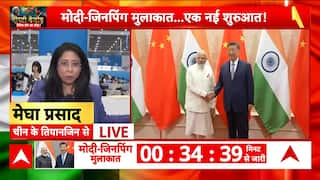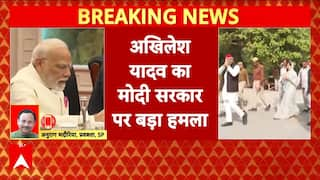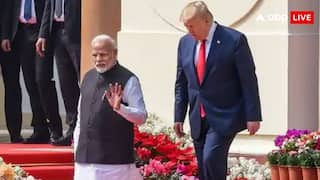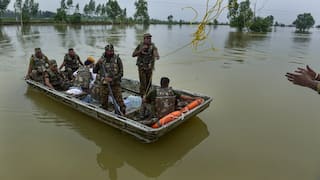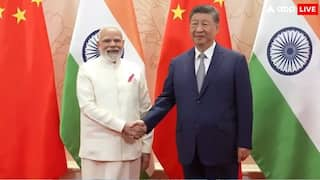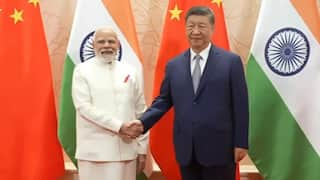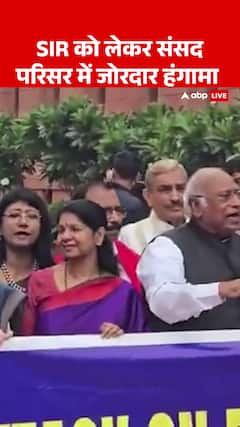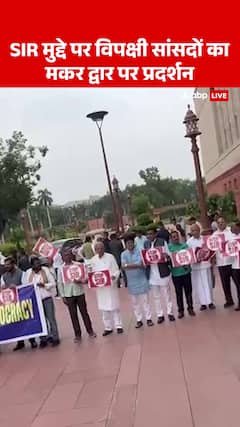Explorer
Looking beyond nice words: Reality check on India-Bangladesh relations
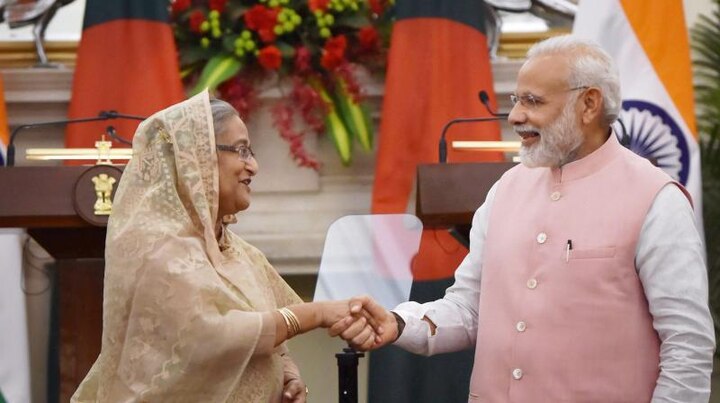
The boilerplate template that is used by our Foreign Office bureaucrats, and dutifully echoed by politicians in power as well as beat correspondents, to describe visits by high dignitaries for bilateral talks at home and abroad reflects the reluctance to think creatively in a time and age when fuddy-duddy limited vocabulary diplomacy is no longer fashionable. The media briefing before the visit by Bangladesh's Prime Minister Sheikh Hasina and the welcome statements on her arrival in New Delhi underscore this point.
If every visit by the Prime Ministers of India and Bangladesh to each other's country ever since Dhaka was freed from Rawalpindi's rapacious and murderous tyranny had indeed taken bilateral relations to a "new level" and added a "new depth", then they would have been at a towering height today. Higher than the highest mountain in the Himalayan range and deeper than South China Sea.
Unfortunately, that is not quite true. Yes, India and Bangladesh share a certain warmth and proximity of minds. Yes, Dhaka has been alert, especially in recent years, of New Delhi's concerns. And yes, Sheikh Hasina has been a steadfast friend of India, both in words and deed, when in power and when languishing in exile out of power. It is equally true that India has tried to walk the extra mile on more than one occasion.
But that by itself does not amount to an extraordinarily special bilateral relationship, neither at the official nor at the popular level. The slew of promises made by Prime Minister Manmohan Singh are yet to be entirely fulfilled. Fresh promises made by Prime Minister Narendra Modi during his visit to Dhaka and on Saturday when Sheikh Hasina came visiting are no doubt impressive. The Foreign Office would do the people a favour by providing a timeline of implementation and periodic updates on which agreement stands where on a given date. The details are likely to be less flattering than official declarations of cooperation.
The new line of credit amounting to $4.5 billion, in addition to $ 2 billion provided by India earlier, is no doubt a bold move forward. But it is a fraction of what China has committed itself to. Last October China's President Xi Jinping, during his visit to Dhaka, had extended a $24 billion loan to Bangladesh and elevated China-Bangladesh relations from "comprehensive partnership cooperation" to "strategic partnership cooperation". Along with that elevation came a gift to Bangladesh of two refurbished Chinese submarines at the "competitive price of $24 billion".
That is the backdrop of India offering a $500 million line of credit to Bangladesh for buying 'Made in India' military hardware. Big nations think big, rising powers spend big. Strategic wisdom lies that way, not in having Babul Supriyo sitting next to Modi at the delegation level talks. It can be said with absolute surety that he knows next to nothing about the intricate entanglement of the two nations. Knowledge of the Bengali language cannot be an overwhelming criterion. MJ Akbar would have been a far better and useful choice. Symbolism matters and often the message is far more important than the intent.
Having said that, it is to Modi's credit that connectivity between India and Bangladesh continues to get a boost with more rail and road linkages being made available for transport of people and goods. The civil nuclear cooperation agreement seeks to address Bangladesh's concerns about energy security. Clean and sustainable sources of energy for Bangladesh would also be beneficial for India. New Delhi must resolutely pursue the implementation of this agreement and if necessary enlarge the scope of nuclear energy cooperation to keep China at bay.
A second security concern for Bangladesh is water. Its implications are also of concern in India, and not only for the Government. Farakka water-sharing arrangement was to the disadvantage of India's riparian States. Now that Farakka is no longer viable, Bangladesh is pushing for an agreement on sharing Teesta water, hanging in the air for three decades. West Bengal has genuine issues about the proposed agreement and Chief Minister Mamata Banerjee is no pushover. Bangladesh is not a water-starved country; its vast water resources are poorly managed. It would be in India's interest to look at a long-term solution by enabling Bangladesh to better harness and manage its water resources.
A third concern, again mutually shared, is the speed with which Bangladeshi Muslims are getting radicalised, swelling the ranks of jihadis organised under a host of names. While Sheikh Hasina has cracked down on the Jamaat-e-Islami, sent the leading razakars of 1971 to the gallows sand, after the terrorist attack on Dhaka's posh Gulshan enclave, unleashed the fury of the state on Islamists, flushing them out of their holes across Bangladesh, all this and more may prove to be too little too late.
Sheikh Hasina erred enormously by not going after the killers of a dozen secular bloggers. That signalled her unwillingness to confront radical Islamism. Contrary to popular opinion abroad, and among the Lutyens's elite, Sheikh Hasina has been less than impartial in fighting back the tide of Islamism. She has constantly sought to balance the war on terror with pandering to fanatics, be it by sanitising school textbooks by removing content found 'offensive' by mullahs or amending the law to legalise the abhorrent practice of forcing underaged girls into marriage as demanded by the preachers of intolerance and hate in the name of Islam. Examples abound. The erosion of secular Bengali culture is so stark that it stands out wrapped in a full-body covering burqa.
The radicalisation of Bangladesh is of concern to India for multiple reasons. We are already facing the consequences of Pakistan's descent into jihadi madness. If Bangladesh were to collapse, we would have to contend with a similar rogue neighbour in the east. The smoke signals are ominous, among them Sheikh Hasina's failure to ensure the safety and security of Bangladesh's dwindling Hindu minority. West Bengal is flooded by Bangladeshi malcontent who now freely cross the border to take refuge here, and then return to indulge in jihadi violence both here and there. A recent Government of India statement pegged the number of Bangladeshis living illegally in India at more than two crore. Nobody knows the exact figure, nor is there any estimate how many of them are radicalised.
Talking about better managing a porous border is fine. But it is primarily India's responsibility to reduce the porosity of the border to the bare minimum. Modi had promised this would be one of his Government's priorities. Records show work on fencing the entire 4000 km long border has been the slowest in the past three years. Blaming babus would be easy but the real problem is the lack of political will, something which the BJP accused others of during the years it was in the Opposition. Good fences make good neighbours. Everything else is negotiable. This simple dictum is wasted on the Government of India.
Kanchan Gupta is Commissioning Editor & Commentator, ABP News. Columnist. Blogger. He tweets @KanchanGupta
Disclaimer: The opinions, beliefs and views expressed by the various authors and forum participants on this website are personal and do not reflect the opinions, beliefs and views of ABP News Network Pvt Ltd.

Follow Blog News on ABP Live for more latest stories and trending topics. Watch breaking news and top headlines online on ABP News LIVE TV
View More
Advertisement
Advertisement
Advertisement









